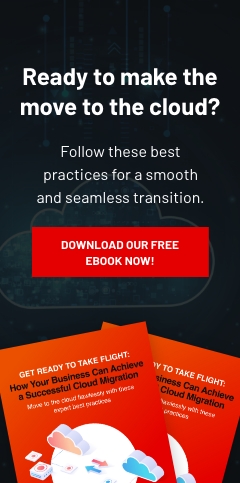Data has become the key driver of business decisions and operations, and how you decide to store and manage this essential asset is now a key factor in your company’s success.
Despite the surge in popularity of cloud-based offerings in recent years, there are still benefits to retaining on-site databases, and for many companies, a hybrid environment works best.
Here’s a brief look at how both options compare:
What is a database management system?
A database management system, or DBMS, is a software platform that enables users to create and maintain a database, as well as control who has access to which information. Although the functionality provided by a DBMS can vary widely, its core functions include storing, retrieving, and updating data. Popular systems include SQL, Oracle Database, and Microsoft Access.
Total cost of ownership
The upfront costs of establishing an in-house data center can be enormous, whereas there aren’t any upfront costs when renting computing services through the cloud. However, cloud-based services demand a monthly subscription fee that may, in some cases, outweigh the long-term benefits of having a remotely hosted database. This is very rare, though, since on-site databases require regular maintenance and upgrades as well.
Scalability and flexibility
One of the cloud’s biggest selling points is scalability. Most database-hosting services let you scale your storage capacity, bandwidth, and computing power on demand. That way, you only pay for the resources you need. By contrast, an in-house database system often needs costly upgrades, and it’s easy to end up over-provisioning just to be on the safe side. Cloud-based solutions are ideal in today’s often unpredictable markets, where shifts in demand can be hard to anticipate.
Compliance and security
Databases often contain highly sensitive information, such as personally identifiable customer data. Cybercriminals routinely target these systems using an ever-evolving range of methods. To mitigate the risks to consumers, governments have introduced a raft of new legislation in recent years to help enforce high standards of security and privacy. While it might be possible to address these requirements in house, doing so can be costly.
Speed and reliability
One of the few areas where on-premises computing still wins over the cloud, at least in theory, is performance. An in-house database won’t be subject to things like limited internet bandwidth or high latency, which makes it more suitable for certain use cases, such as edge computing. After all, a cloud-hosted database is only going to be of any use if your internet connection is
sufficiently fast.
Accessibility and remote work
In the age of remote work, it’s essential that your databases are accessible from anywhere. If you’re relying on an in-house data center, that’s a lot harder to achieve, unless it’s accessible remotely. Cloud-based systems, on the other hand, are readily accessible from any location or device with a strong internet connection, making them essential for any organization with a strong remote work environment.
Service availability
On-site databases may offer better response times and improved performance in some cases, but downtime can be a recurring problem, especially if you don’t have the resources required to keep everything running smoothly. Cloud providers, however, are bound by the obligations laid out in their service level agreements (SLAs) to provide a clearly stated minimum level of service. For example, if an SLA guarantees a service uptime of 99.99%, your database should be accessible almost all year round, with a maximum downtime of only 53 minutes per year.
Complete Document Solutions provides the perfect blend of people, process, and technology to provide you with customized solutions that align with the unique needs of your business. Contact us to schedule your first consultation.



Leave a comment!